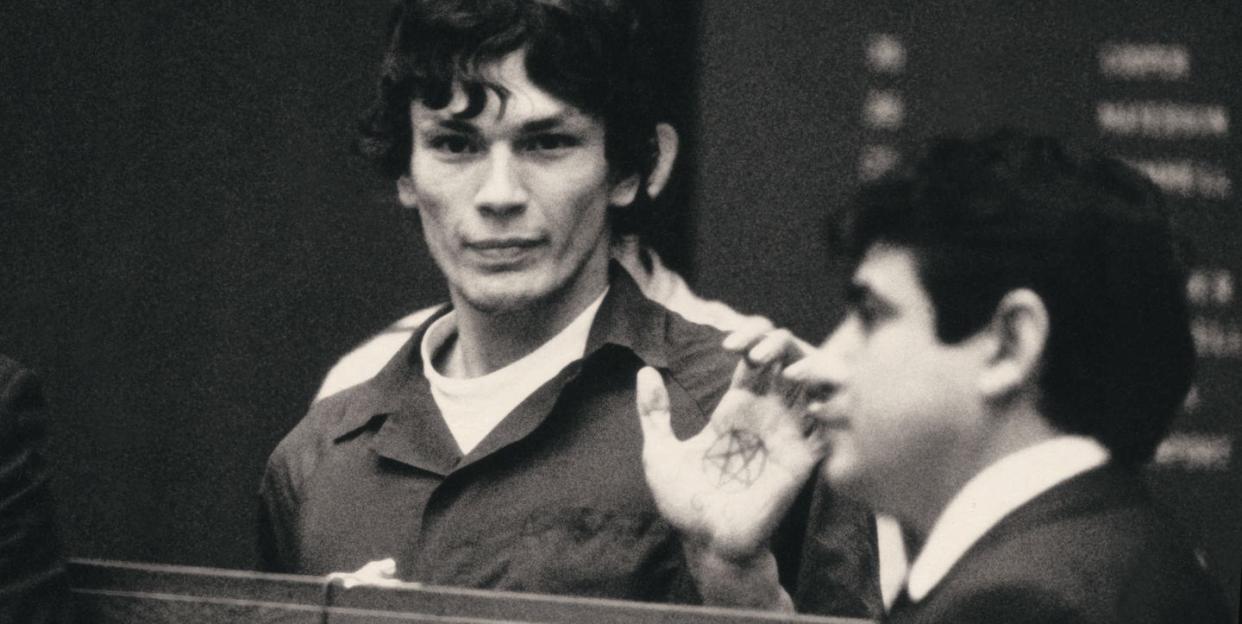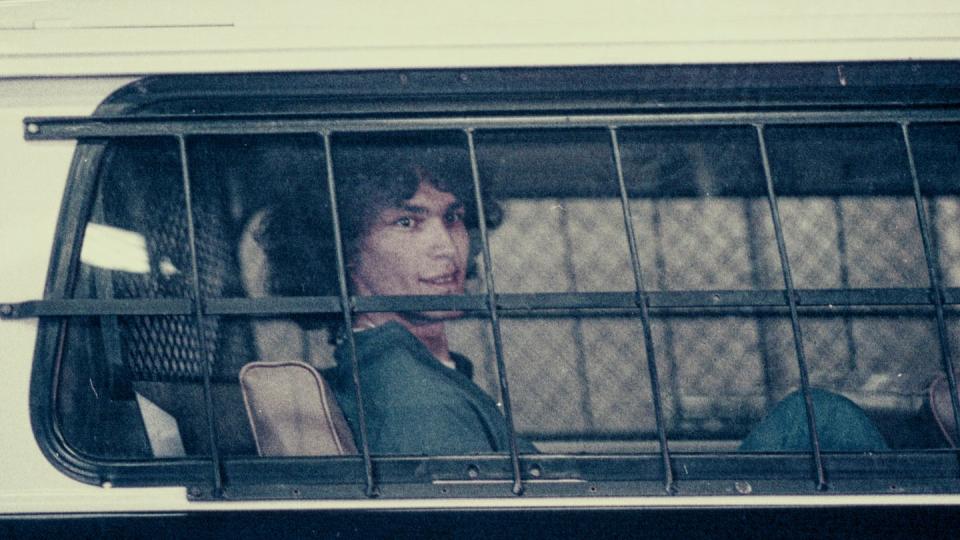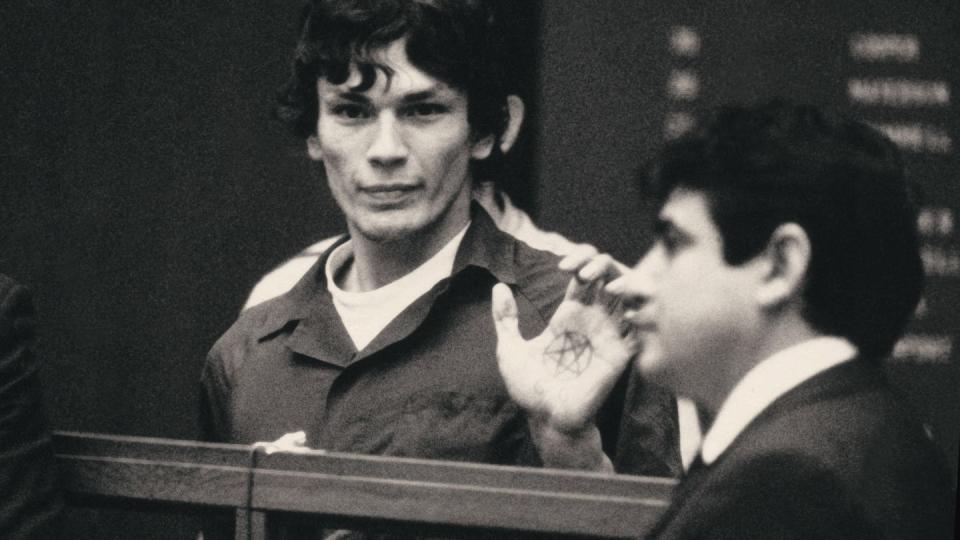What Netflix's 'The Night Stalker' Got Wrong About the Richard Ramirez Case

Note: This article contains discussion of sexual assault and themes that some might find distressing.
In the dead of night, men were shot at point-blank range before their wives were bound and raped. The elderly were murdered while sleeping in their beds, to be found by loved ones the following day. Women were stalked, brutally beaten and killed. Children were snatched off the streets and sexually assaulted.
It may sound like something straight out of a nightmare, but this was Los Angeles in the mid-'80s. The elusive culprit, soon discovered to be responsible for this wide variety of crimes, was branded 'The Night Stalker' and is now the subject of Netflix's latest true-crime offering.
The four-part series goes into grim and disturbing detail, not shying away from the cold, hard facts of the case. But The Night Stalker – which doesn't name Richard Ramirez, the man behind the terror, until the final episode – also continues to echo the sensationalism and panic of the time, failing to ground its story.

The documentary maker was aware of this potential pitfall, telling Variety that they "didn't want to glamorize him in any way".
"That was incredibly important to us not to fall prey to his false and corrupting and dangerous myth," director Tiller Russell added. Instead, they accessed the story through the detectives, focusing much of the screen time on the investigation and survivor testimony. But, in doing so, the continued mystery around Ramirez inadvertently served to perpetuate his notoriety.
The sheer brutality and range of the violence was hard for many to comprehend. Witnesses talked of Ramirez's dark, sinister eyes. They recalled his 'inhuman' presence. He was often likened to a monster; another being that couldn't possibly be from this world. The drawing of pentagrams and the satanic symbols found at crime scenes only watered this seed.
Philip Carlo's crime book – also titled The Night Stalker – perpetuates these notions too. Written with direct access to the killer, it incorporated extensive interviews with him while he sat on Death Row. As such, the pages go into detail about Ramirez's own obsession with Satan and his belief that he was being 'protected' by evil forces while acting out his abhorrent impulses.
The book was first published in 1996, less than seven years after Ramirez's conviction, while its audience's fears were likely still lingering. With the luxury of more time and distance, the Netflix series had an opportunity to move the conversation along and bring some fresh insight into the whys and hows of the serial killer's spree – and yet it doesn't.
While we're not here to criticize or invalidate anyone's religious beliefs, or to debate the existence of good and evil, it's important to balance these with the other side of the coin. Criminal psychology, and the fundamental desire to understand the darkest facets of the human psyche, is a not only a big draw for fans of the true-crime genre, but it also plays a role in investigative and judicial processes.
By writing Ramirez off as being under the influence of an incomprehensible power or an otherworldly force, we allow him to escape personal accountability.
It was Richard Ramirez who violently took the life of his victims. He raped children. He destroyed lives. While his actions are certainly hard to stomach, they need to be rooted in real-world context. Just like many other killers with a sexual motive, Ramirez described sex and murder as being intrinsically linked in his mind, but there was a lack of expert analysis in the documentary to unpack this.
At the very end of the documentary series, we hear Ramirez's own words begging the age-old question: "Is there such a thing as a bad seed when a baby is born? Is he already a serial killer, already made, or is he created?"
The show briefly touched on Ramirez's difficult childhood, but it spent very little time on it. It's also worth noting that he had been using drugs and getting by on breaking into people's homes to steal things for money. While none of this can excuse, or even explain, his segue into murder, they're all pieces of the puzzle that could have been explored a little further.

According to Philip Carlo's book, Ramirez seemed to get satisfaction from notoriety. He scoured media reports of his own crimes, wanted people to know of his power, and had admiration for other famous serial killers. He perpetuated the satanic imagery himself – even holding up a pentagram on his hand in the courtroom. Was all of this part of his own gratification? Did his enjoyment of the crime, and the look of shock and fear on his victim's faces, extend to the public perception of him too?
Let's also not overlook the fraught and complicated history that true crime, and society as a whole, has had with what's become known as the "Satanic Panic".
Becoming prevalent in the '80s, which fits the timeline of the Night Stalker case, it was a conspiracy theory that perpetuated the idea of a network of occultists who performed ritual murders and kidnapped children. Despite having no real basis, it struck fear in the public while also having very real consequences for those wrongfully accused of being involved.
Perhaps most famously, a group of teenaged heavy-metal fans known as the West Memphis Three were convicted for the horrific murder of three young boys, with only questionable evidence and a narrative that centred their 'weird' and 'gothic' ways.
There was a firmly held belief that the murders were part of a satanic ritual, and it was this, mixed with the emotive nature of the crimes, that reinforced the public's outcry. Almost 20 years after they were imprisoned, after new DNA evidence came to light, the three men were finally released.
In contrast, Ramirez's guilt is unquestionable. But by putting too much emphasis on the satanic angle of his case, we're also giving credence to a problematic part of recent history that harmed and ostracized people.
Ramirez still haunts pop culture, with American Horror Story hamming up this discourse even more for a disturbing Night Stalker storyline in 2019. Taking the public's fears and realizing them on-screen, the show portrayed him as literally evil incarnate (having been raised by the devil).
The Night Stalker missed an opportunity to offer new insight into the Richard Ramirez case and interrogate it through a more contemporary lens. Instead, it's another horror story that only seems intent on shocking its audience all over again.
The Night Stalker is available on Netflix.
You Might Also Like

